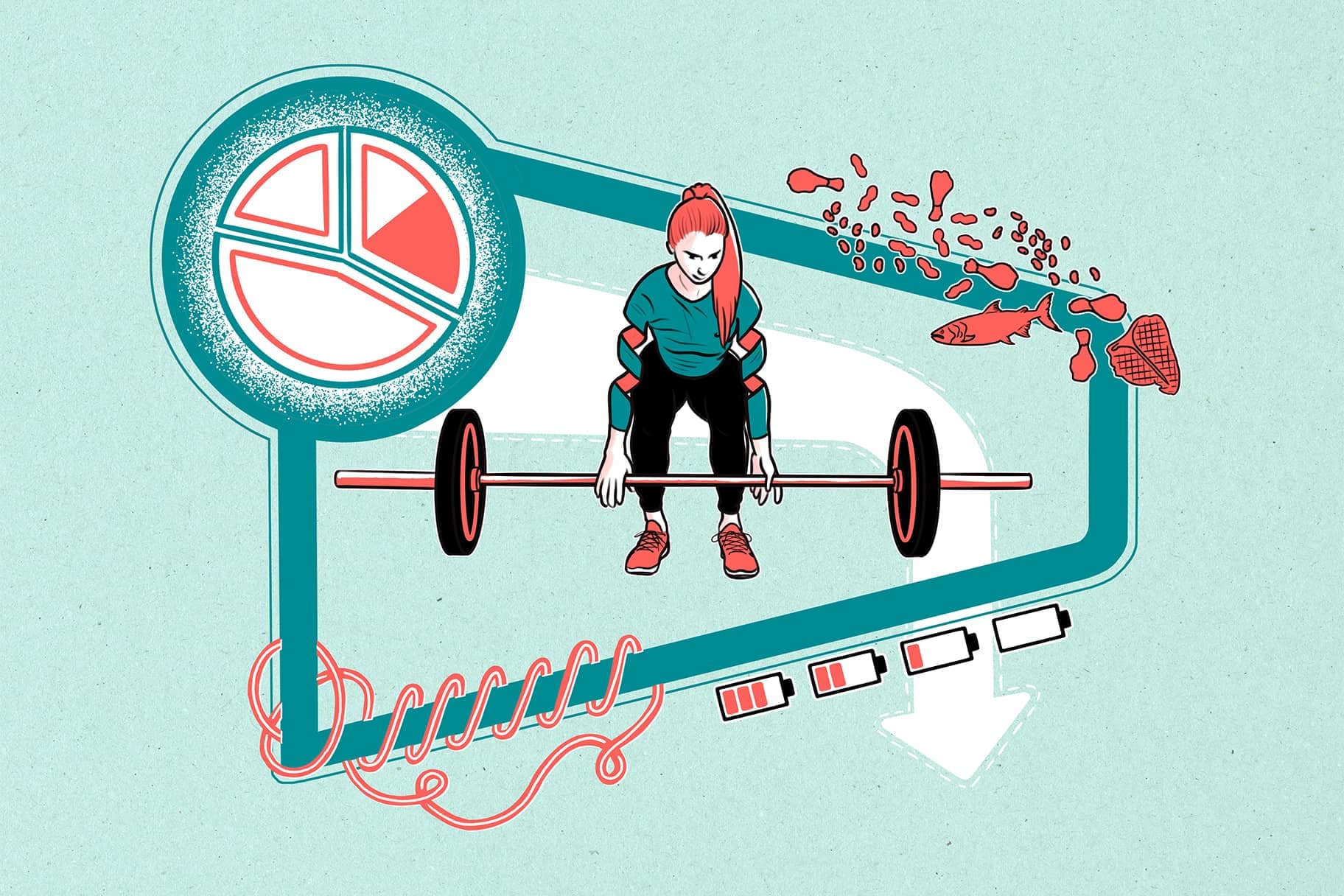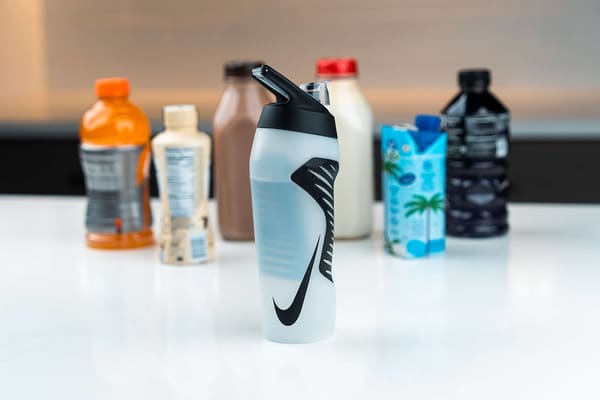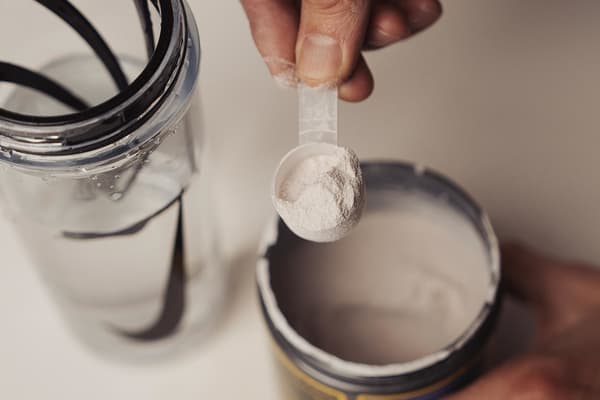4 Symptoms of Protein Deficiency to Watch Out For
Nutrition
A registered dietitian explains the key signs of protein deficiency and why the macronutrient is so important to include in your diet.

Protein is one of the three main macronutrients (protein, carbohydrates and fat) that people need to consume for optimal immune function, sleep, muscle growth and repair, metabolism—the list goes on and on.
For many people, meeting daily protein needs solely through diet is no problem. However for some individuals, it can be challenging to include enough protein-rich foods. Protein deficiency occurs when the consumption of protein doesn't meet the amount the body requires. Though uncommon in most developed countries, protein deficiency affects about 1 billion people worldwide.
What is the recommended daily intake of protein?
According to the 2020–2025 dietary guidelines for Americans, individuals should consume anywhere from 10 to 35 percent of their total daily calories from protein. In terms of the amount of protein (in grams) an average, healthy, sedentary (average) individual should consume per day, the Recommended Dietary Allowance, or RDA, is 0.8 grams of protein per kg of body weight per day. By this standard, a 68-kg adult would consume about 55 grams of protein per day. Though that should just be taken into consideration as a benchmark. It's important to note that many factors can affect the amount of protein a person should aim to consume each day, including age, sex and activity levels. Having a chronic illness or recovering from injury can also affect the amount of protein you need daily.
Protein is necessary for many reactions and processes in the body. Muscle growth and repair, a well-functioning immune system, adequate sleep and weight maintenance all depend on adequate protein intake. But those are just a few of the functions that require protein—there are many other components of health and well-being that rely on adequate levels of the macronutrient.
When protein is consumed from a food source (think beans, meat and nuts), it's broken down into its smallest building blocks called amino acids. The majority of these amino acids can be made in the body; however, there are nine amino acids that are essential, meaning they must be consumed from the diet.
(Related: How Much Protein Do You Really Need To Build Muscle?)
If you suspect you're not getting enough protein in your diet, make sure you make an appointment with your GP to get examined.
4 Signs of Protein Deficiency
1.You get sick regularly or colds seem to linger.

Consuming enough protein is key for proper immune function. If you are very active or an athlete, making sure you get enough protein in your diet is especially important for your immune system. Exercising, in general, is important for immune health. But those athletes participating in endurance sports, such as marathon training or distance cycling, can encounter negative impacts to their immune function as a result of the heightened training demands.
An article in a 2012 issue of the journal Nutrients suggested that many factors can contribute to weakened immunity during periods of heavy training or exercise, such as elevated cortisol levels (a stress hormone) and low levels of glutamine, an amino acid. Combine high levels of exercise with a low-protein diet and you could be at risk of getting colds or other viruses and ailments.
When you consume protein, your body is able to then make critical components of the immune system. So, without enough protein, your immune system isn't able to make those virus-fighting factors. Those long colds that don't seem to go away could be an indicator that you aren't consuming enough protein. Whether or not supplementing with amino acids is helpful in supporting immune function is still up for debate. In general, it's wise for athletes—and active people—to make sure they are consuming at least 20 grams of protein at every meal, with protein-rich snacks and of course, including vitamin- and mineral-rich fruits and vegetables.
2.You feel starved after a workout and struggle to build muscle mass.

Maintaining a comfortable physique that you feel confident in is important. And, of course, diet and exercise play a starring role. However, not eating enough protein could be the reason your body composition feels off. According to a review in a 2018 issue of Frontiers in Endocrinology, protein promotes satiety and raises energy expenditure (the amount of energy the body spends to maintain its functions). Making sure your metabolism and hunger hormones are operating in tip-top shape is crucial for supporting your gains in the gym or training programmes. That feeling of being insatiable after a workout could be because your post-workout meal or snack doesn't contain enough protein to turn off those hunger hormones (specifically ghrelin) and initiate satiety (leptin).
(Related: Eat These Foods Before Exercising, Says a Registered Dietitian)
In addition to promoting satiety and raising energy expenditure, adequate protein intake also helps to maintain and build lean muscle mass. And while you can still meet your daily caloric requirements by following a diet that's rich in carbohydrates and low in protein, you probably won't get the results you wish to see. That's because, without enough protein in the diet, you may gain more fat mass than muscle mass.
3.You're struggling to recover from injury.

No one, whether an athlete or avid gym-goer, wants to get injured. If you find yourself having a particularly hard time bouncing back from an injury, a lack of protein could be to blame.
A review from a 2019 issue of the International Journal of Sport Nutrition and Exercise Metabolism suggested that having more protein than the RDA when recovering from an injury will probably aid the healing process. So, if your body is already in a protein deficit, it will require a lot of planning and thought to make sure you not only meet your protein needs but also eat more than the suggested baseline.
In a 2018 review, published in the journal Nutrition, the authors suggested that protein needs during injury recovery should be increased to 1.6–2.5 grams per kg of body weight per day, spread out over several meals—with each containing between 20–35 grams of protein—in order to maintain lean muscle mass. But try not to get bogged down by the numbers. Think about it like this: you could double (or in some cases triple) the protein that is already on your plate to meet this suggestion.
(Related: What Is Protein Powder? And Should I Try It?)
4.You often feel fatigued.

Fatigue can really put a damper on motivation and the ability to get through and crush a workout. Many times, fatigue could be due to something non-diet related, such as a lack of adequate sleep and recovery time between sweat sessions or elevated stress and anxiety levels. In rare cases, it could be due to a lack of protein in the diet. Not enough research has been done examining fatigue and protein deficiency in athletes but in general, there is a two-way relationship between fatigue and undernourishment.
Research found in a 2020 issue of the journal Nutrients simplified the link between underconsumption of protein and fatigue: when you are undernourished, you will be more tired and when you are more fatigued, there's less of a chance you'll be able to feed yourself well. In addition, when a diet does not provide adequate protein, the body will start to break down muscle in order to meet its needs and this process, in and of itself, can cause fatigue.
The bottom line: protein deficiency is diagnosable by a doctor. While it may be uncommon, slight dips in protein consumption might have unwanted effects on immunity, body composition, injury recovery and fatigue—especially if you're an athlete. For vegans and vegetarians, meeting protein needs can be difficult but working with a registered dietitian can help. An RD can also help those who do not like to cook or have generally weak appetites. There are many choices for protein (seafood, tofu, seeds, eggs, beef, poultry, dairy, legumes), so it shouldn't be hard for a professional to help you find an option that's both tasty and easy to prepare.
Words by Sydney Greene, MS, RD





